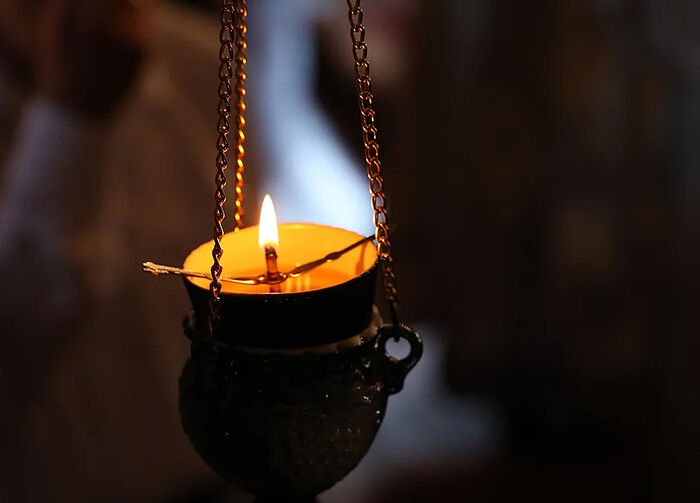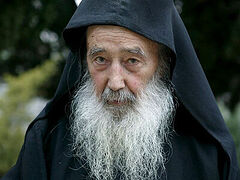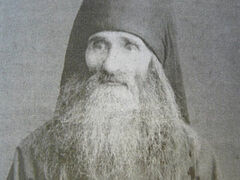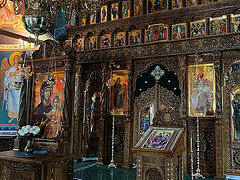Metropolitan Anthony of Sourozh said, “We are supposed to be on fire, but instead we smoulder.”
When wood is damp, there is only smoke, acrid smoke instead of fire. Why this constant “dampness” of our spirit? Why can’t we dry out under the Sun of Truth—God? Maybe because we hide from God? We hide in our own needs, in our own secret experiences, without relying on God’s will.
You know, to be dry, you need to be in the sun all the time and to keep the right temperature. If we want to not be “damp” and not to “smoulder”, then we should be before the Sun of Truth, before our Lord, permanently. And then we will dry out little by little.
We hide in some “damp places”. And what does “damp” mean? “Dampness” is when, instead of being in the sunshine, we go to another reality, where it’s dark, where there’s some kind of “swamp”. It is when, instead of trying to strive for God’s Kingdom, we are attracted to something earthly. Remember: when you put something on the ground, it is bound to become soggy. When you hang something up, it is bound to dry out. Housewives know that we do not put something on the ground to dry it out, but we hang it up so that the wind can blow on it from all sides and the moisture from the ground cannot affect it. So, what’s on the ground is damp, and what rises from the ground dries out.
When we cling strongly to earthly things, when we get attached to our worldly successes, to the worldly successes of our loved ones, and worry excessively about our earthly future and our earthly present, then we become “damp”; instead of “being on fire” we “smoulder”, and this acrid smoke disturbs us.
When we pray, we want our prayer to be without extraneous thoughts, without the “smoke” of worldly thoughts and vanity. And the Church teaches us the same during the Liturgy: “Let us set aside the cares of life.” But we cannot pray like that. Every worldly concern is constantly creeping into our mind, creeping into every crevice. Because the heart is inextricably attached to these things. We should pay heed to this. When we are praying, the things our hearts are obsessed with are persistently creeping into our mind; we are obviously attached to these things, because the Evil One has noticed it. He sends these thoughts to us. He does not read thoughts, but sees them by our actions. He sees our works. He gives us an enticement, then we “fly away” during prayer, and he sees that the person already blinks, smiles while praying, remembering something, relaxing, and making the sign of the cross improperly. The evil one notices it all. “So, we will keep slipping these thoughts furtively into you so that you may be ‘damp’, never ‘dry out’, smoulder all the time and never belong to God.”
Look at candles. The wax they are made of is devoid of moisture. When you touch a candle with something wet and then light it, the candle crackles. In order not to “crackle”, but to be on fire, you need less of this earthy moisture. But how do we get rid of it? We who live in the world, in vanity, in constant contact with the world? We are always supine, crawling on the ground, like the serpent that God cursed. God said to man when he was cast out of Eden: In the sweat of thy face shalt thou eat bread (Gen. 3:19). But we don’t just literally earn our bread. We always want more, and that is the key to our earthly affections. There was a teacher in the early Church called St. Clement of Alexandria, who said, “The world offers us extra.” The world offers not only what we really need, but “extra” so that we would stew in this “extra”, seek it, pursue it, and our overladen ship would sink. To keep the plane from taking off, it must be overloaded. You tie a pebble to a little bird’s leg, and it can no longer fly. So it is with us. Presbyter Clement goes on to say, “You are a Christian and must care about the essentials.”
But how do we care about the essentials only? Where do we find that golden mean? He answers, “Here’s your food—you know what you need on your table to be healthy. Here are your clothes—Christ says: wear just what you need and give away the surplus. But it’s not easy to give away the things you love, the things you’re attached to.”
God shows us how obsessed we are with these things. In the early Church Christians could be distinguished by the fact that they were dressed in humble clothes, although the patricians wore expensive tunics, and no one forced them to take them off because that was their status. But the Church says that even in your status you shouldn’t cling to this status, to this ground. Otherwise you won’t “take wing” and won’t see Heaven.
To see the sun you need to raise your head, not just look down. In order to take off you need to get rid of the extra ballast. To keep a ship from sinking you must not overload it.
You may notice that at major highways there are weighbridges for trucks where they check their weight so as not to be overloaded and thus not to break up the road so that it won’t get spoiled and be ruined. In order not to spoil our Christian road we shouldn’t be overladen.
St. Paisius the Hagiorite said, “In worldly matters do not do more than three things, otherwise there will be harm to the spiritual life.” But We have a lot of things, and we have a lot of cares.
It is good to strive to get rid of the “ballast” gradually. Start by beginning each day with prayer. Stand before each day as before a stage, as before a map: “This is the path I must walk today; bless me, O Lord, for this stretch of the road, and at this turn, O Lord, let me serve You today.” In the best moments of prayer we should desire to love God more, to ask the Lord to teach us how to pray, that we remember to pray, that prayer is spiritual food, and that we need to breathe by prayer.
Our lungs don’t think about how to breathe; they breathe on their own. We should ask the Lord: “Lord, give me prayer to remember Your holy Name more often.” Ask Him for concentrated prayer. And then we will be less attached to this earth. Because then God Himself will break these earthly threads by His grace.
God can fulfil our request. “You asked, so receive it.”—”Lord, help me to love You deeply”; “Lord, help me forgive sins to my enemies, to my neighbors, because I can’t even concentrate on prayer.” What are we talking about? About resentment towards someone? We can’t even stand before God attentively!
When we recite the Lord’s prayer, we must sincerely say: “Forgive us our trespasses, as we forgive those who trespass against us.” And then we will not cling to the earthly, and there will be less overloading.
When there is aspiration to Heaven in prayer, we already see less earthly things. Let your request be, “Lord, let me remember You.” And again you will see less of the earthly. There will be less of the corruptible when we are focused on the incorruptible. There will be less of the material when you seek the spiritual.
How I wish I could cry from the bottom of my heart, “Lord, teach my heart to seek You everywhere and in everything.” Blessed Augustine of Hippo said, “You made us for Thyself, O Lord, and our hearts are restless until they rest in Thee.” Lord, make us understand that we were made for You, teach us to love You, to be with You, to serve You. Serve You through helping our neighbors and doing it sincerely, that we never say: “Oh, it’s him again... I’m sick and tired of him...”
But this is what we should say in our hearts: “I am here, O Lord! You are calling me. You are calling me for help, for support.” If we do earthly things for God, we will have fewer earthly things. There will be wings growing! Two wings: prayer and labor. Labor for the glory of God, and prayer to God!
If God wills, we’ll “take wing”!
We’ll stop “smouldering” and start keeping our faith lit; even if with a small flame, but we will be on fire. But even with a little fire we have light and warmth. Light and warmth... May God help us!





